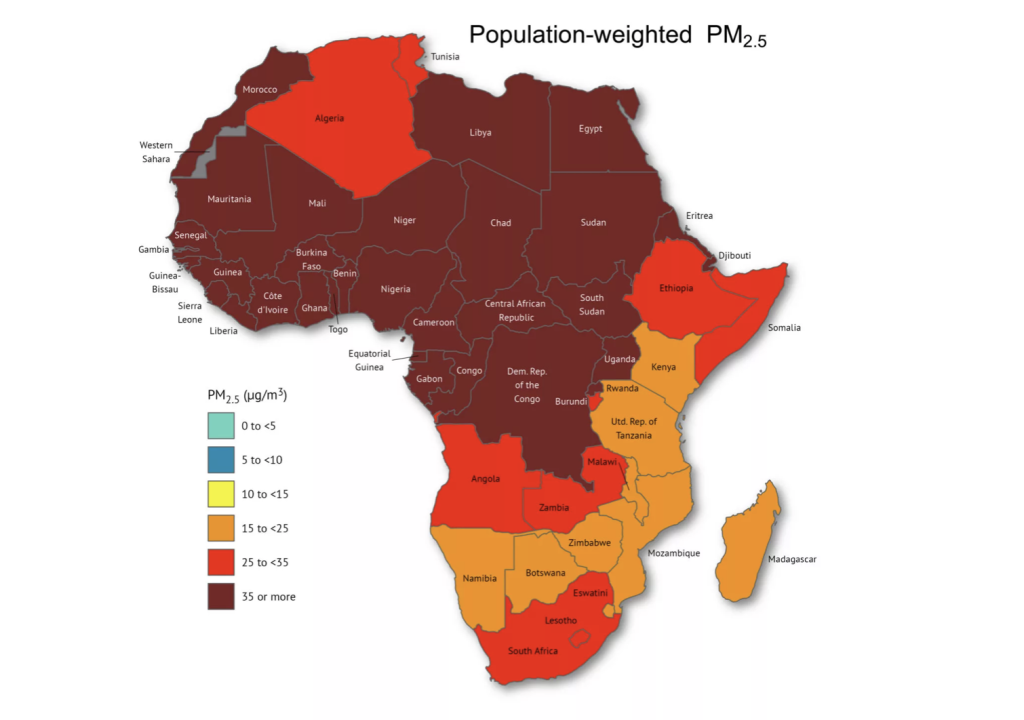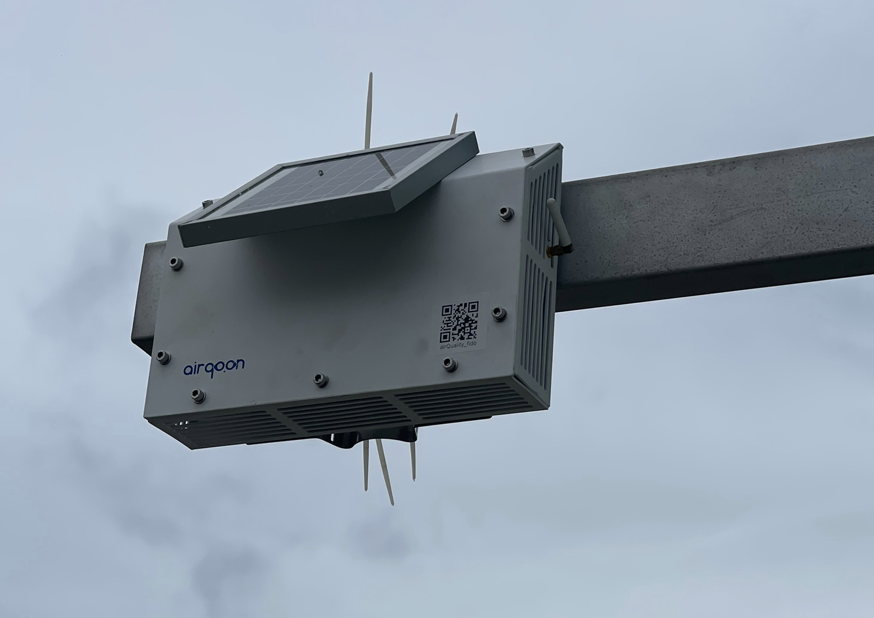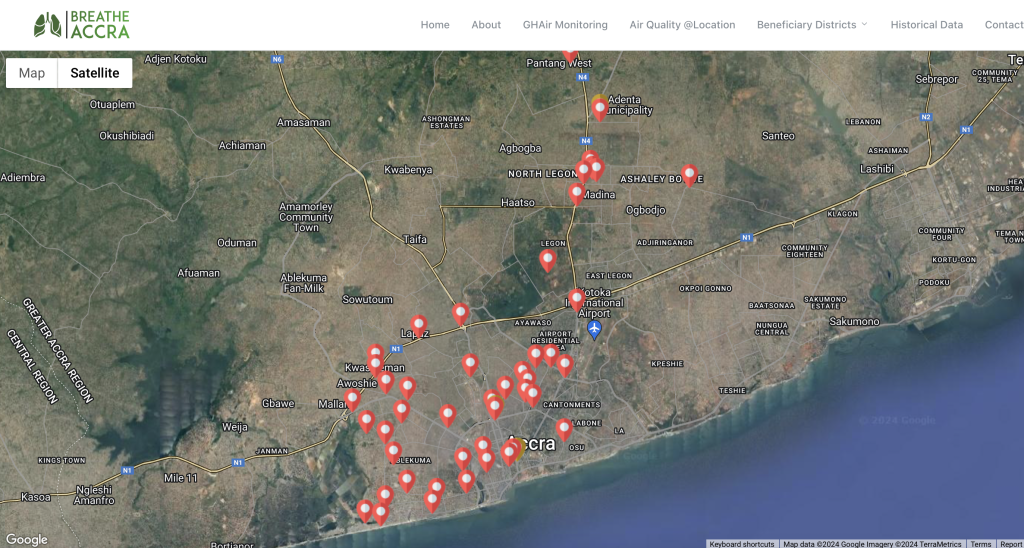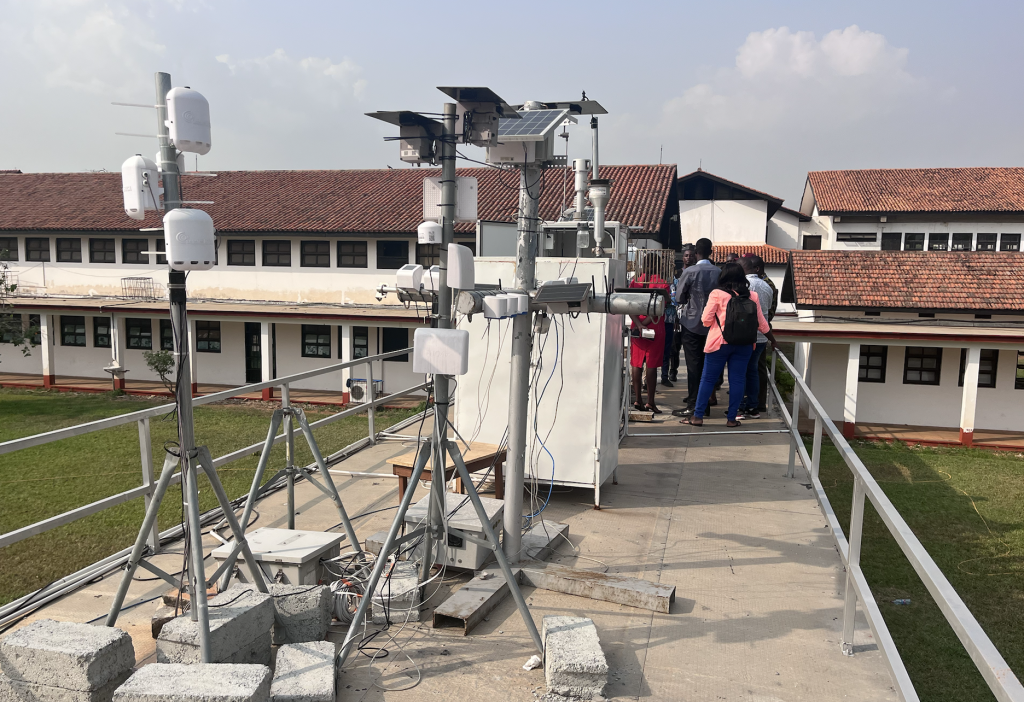Albert Oppong-Ansah
Accra, Feb. 11, GNA – “You can’t manage what you can’t measure” – the famous quote by Peter Drucker, the late father of modern business management, has been used in many fields.
Now experts say it needs to be urgently applied to Africa’s air quality in order to save millions of lives being cut short by rising levels of air pollution.
The threat from toxic air is already severe in Africa where just drawing breath is killing 834,000 Africans prematurely every year, according to the World Health Organisation (WHO).
That number is only set to escalate as African population growth outstrips that of every other continent in coming decades. The WHO now says air pollution is the greatest global environment risk.
Air quality data challenge
But just how dangerous air pollution is in Africa is not clear. Until now data on air quality and its impacts have not been well recorded according to experts.
The push now is to build a massive baseline dataset to measure where things are headed.
“It is important also to build on a baseline for many reasons especially, to compare the past and present,” says Prof. Dan Westervelt, Lamont Associate Research Professor at Columbia University, Lamont-Doherty Earth Observatory.
He was in Ghana for a workshop training of West African expert in air pollution. Pro. Westervelt has partnered with researchers at the University of Ghana to conduct air pollution studies.
The latest WHO research in Ghana from 2020 estimates that three people die prematurely every hour due to air pollution or 28,000 people annually.
Pro. Westervelt thinks the current number may be much higher.

Until now there has not been much concrete evidence establishing the links between deaths, health and economic burden in Ghana.
Experts say that is needed to draw the attention of decision makers in Ghana, and Africa generally, and encourage them to take bold steps to improve air quality.
The problem extends across Africa, according to Madam Seneca Naidoo, Regional Technical Advisor for Air Quality Southern Africa. Naidoo observed the trend while working with mayors from major cities in Africa.
“This becomes difficult to identify the major sources of air pollution in order to flag it for priority action,” she says.
There are devices that help monitor air pollution levels. However, of the African Union’s 55 member states, only 17 countries do any air quality monitoring, according to the latest report from the Health Research Institute, a non-governmental research organisation.
Seneca says for a start, leaders, especially mayors, need funding to acquire monitoring devices to gather data on air quality.
Ghana has been on the forefront of efforts to measure air quality. The country currently has 64 sensors. Kenya and South Africa have also made efforts. But most other countries on the continent have none.
Cost is a factor. The higher quality sensors, or “reference grade” monitors, can range in price as high as $US40,000 depending on the brand and functionality.
Low-Cost Sensors (LCS), which perform similar function, can range in price between $US50 and $US3,000.

Representatives from various African countries attending the workshop in Accra, expressed concern and called for donor support to acquire sensors.
“Liberia has developed Air Quality Regulation and is expected to be validated and published,” said Mr Rafael Ngumbu, Manager, Environmental Research and Radiation Safety, at Liberia’s Environmental Protection Agency, for example.
“The challenge for validation is lack of data to inform standards. However, we have no air sensors to collect baseline data so our work has stalled.”
He is appealing to development partners to support them acquire sensors gather data, process it to inform decision makers and educate the public.
Kenya’s Nairobi also lacks enough sensors according to Mr Teddy M.Mutisva, an Air Quality Technical Instrumentation Specialist from Kenya who also attended the workshop,
“I lost a dear friend who was a bank manager to a respiratory condition linked to air pollution. Governments need to do more to improve air quality,” Mr Mutisva says.
He is of the view that the burden of air pollution is huge and Nairobi should have over 100 sensors in its central business district.
Sensor data collection efforts in Ghana
Mr Desmond Appiah, Country Lead for the UK-based nonprofit body, the Clean Air Fund, says access to clean air is a fundamental human right that everyone must enjoy.
But it’s a challenge as long as there is no data to measure the size of the problem. He says his organsation has commenced initiatives with stakeholders to bridge the gap.

The Breathe Accra Project is being supported by funding from the Clean Air Fund to collect data using low cost sensors to identify air pollution trends, assess effectiveness of air pollution control strategies, and inform policy decisions.
The project has installed low cost sensors in 12 municipal areas in the Greater Accra Metropolitan Area.
The project, which builds on the work of Professor Kofi Amegah’s Ghana Urban Air Quality Initiative, hopes to educate the public and provide them with real time data to enable them to take action to improve air quality in their neighborhoods.
“This is augmenting the effort of the Environmental Protection Agency’s work and that of other developmental partners who have set up air quality monitoring networks in Accra, Tema and some regional capitals to collect real time air quality data,” he says.
Prof. Amegah, having realised the health and economic burden through a series of studies, began buying low cost sensors to help data collection.
Ensuring data correctness amidst scarcity
The use of low-cost sensors has been criticised by some researchers who say they are not reliable enough. But the UN Environment Programme and other organisations are leading the deployment of some of these monitors and proactively assessing the viability of fusing satellite and ground observations.
Dr. Allison Felix Hughes, Senior Lecturer at the Department of Physics, University of Ghana, says the best way to improve data from low cost sensors is through evaluation.

Together with a group of researchers he has set up an Air Sensor Evaluation and Training Facility (Afri-SET) currently hosted by the Department of Physics, University of Ghana, to appraise sensors from different manufacturers globally.
The facility is evaluating nearly 30 sensors produced by manufacturers from the United States, Spain, Poland, Thailand, Kenya, India and Uganda.
Afri-SET is comparing the results of low cost sensors against the results from the more expensive reference grade monitor mounted at the same location at its center, to assess their effectiveness.
With funding from the US Department of State and Clean Air Fund, Afri-SET is aiming to train about 300 air quality professionals and students on low cost air sensors, installation, management and usage.
Dr Hughes and his team aim to set up a second Afri-SET in either East or Southern Africa to serve those parts of the continent.
The facility’s mission, he says, will ignite innovation among researchers and programmers to build low cost sensors to be deployed in the nooks and crannies of the continent to get useful data everywhere and save lives.
GNA
This story was a collaboration with New Narratives as part of its Clean Air Reporting Project. Funding was provided by the Clean Air Fund. The funder had no say in the story’s content.